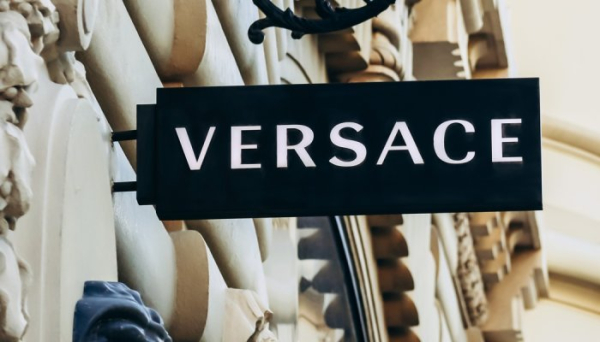
Prada said Thursday that it had reached a deal to buy Versace for 1.25 billion euros (USD 1.38 billion), building a new Italian fashion powerhouse and hoping to insert much-needed “spark” into its smaller, flashier rival.
The much anticipated acquisition, from US group Capri Holdings, will create a group with revenues of over six billion euros that could better compete with giants such as the French conglomerates LVMH and Gucci owner Kering.
“We are delighted to welcome Versace to the Prada Group and to build a new chapter for a brand with which we share a strong commitment to creativity, craftmanship and heritage,” Prada Group chairman Patrizio Bertelli said.
In 2018, Capri paid 1.83 billion euros (then $2.1 billion) to acquire Versace, which was previously owned 80 percent by the Versace family and 20 percent by the US investment fund BlackRock. But amid declining sales it sought a buyer, opening exclusive negotiations with Prada at the end of February.
Capri, which also owns Jimmy Choo and Michael Kors, had to accept a reduced price from Prada amid the market turmoil caused by US President Donald Trump’s tariffs. The Financial Times had reported that the price was initially expected to be about USD 1.6 billion but had been negotiated downwards in recent days.
Donatella’s departure
Last month, Donatella Versace stepped down as creative director after more than 30 years, a move widely seen as a prelude to the accord.
She took over in 1997 following the murder of her older brother Gianni, who founded the label in 1978. But on April 1 she was replaced as creative director by Dario Vitale, who has overseen soaring sales at Miu Miu, Prada’s sister brand targeting a younger clientele. Donatella will now serve as Versace’s chief brand ambassador.
While still a label associated with the jet set, some of Versace’s lustre has faded in recent years.
Capri had expected turnover to fall to $810 million during its 2025 fiscal year, according to Prada, down from $1.03 billion a year earlier. By contrast, Prada, under the creative helm of Miuccia Prada, the 76-year-old granddaughter of group founder Mario, is in robust health.
Despite a global slowdown in luxury good sales in recent years, Prada’s net profit jumped 25 percent to 839 million euros in 2024, on revenues that grew 15 percent to 5.4 billion euros.
Andrea Guerra, Prada’s group chief executive, said Thursday that Versace had “huge potential” but warned there was work to do. “The journey will be long and will require disciplined execution and patience,” he said. The deal, funded through 1.5 billion euros of new debt, is expected to close in the second half of 2025.
For its part, Capri said the sale would allow it to step up investments in Michael Kors and strengthen its balance sheet.
No revolution
The two fashion labels have starkly different styles, with Versace’s exuberance contrasting with Prada’s sophisticated minimalism.
Prada said its new acquisition “constitutes a strongly complementary addition” to its portfolio and promised to “maintain its creative DNA and cultural authenticity”.
“I don’t think we need to change the brand, to revolutionise it,” Prada’s marketing director, Lorenzo Bertelli, told analysts during a conference call. “We need to just evolve it… all together, they’re going to make, hopefully, a huge spark and bring back Versace to be a huge success.”
Bertelli, the eldest son of Miuccia Prada and Patrizio Bertelli and who is expected one day to take over, said his mother would not have creative involvement in Versace.
Core business
The deal bucks the trend of recent years, which has seen major names in Italian fashion such as Gucci, Fendi, and Bottega Veneta fall under the control of their French competitors.
However, a previous attempt to expand the Prada portfolio — which also includes luxury footwear brands Car Shoe and Church’s — offers a cautionary tale. In 1999, the family group acquired the German brand Jil Sander and the Austrian label Helmut Lang before selling them in 2006 as they were weighing down its financial results.
In 2000, Prada jointly acquired a 51 percent stake in the Roman label Fendi with LVMH, but sold its 25.5 percent stake to the French luxury giant a year later.
With the Versace acquisition, “I see a risk for Prada to become distracted from its core business,” Luca Solca, an analyst at Bernstein, told AFP.
